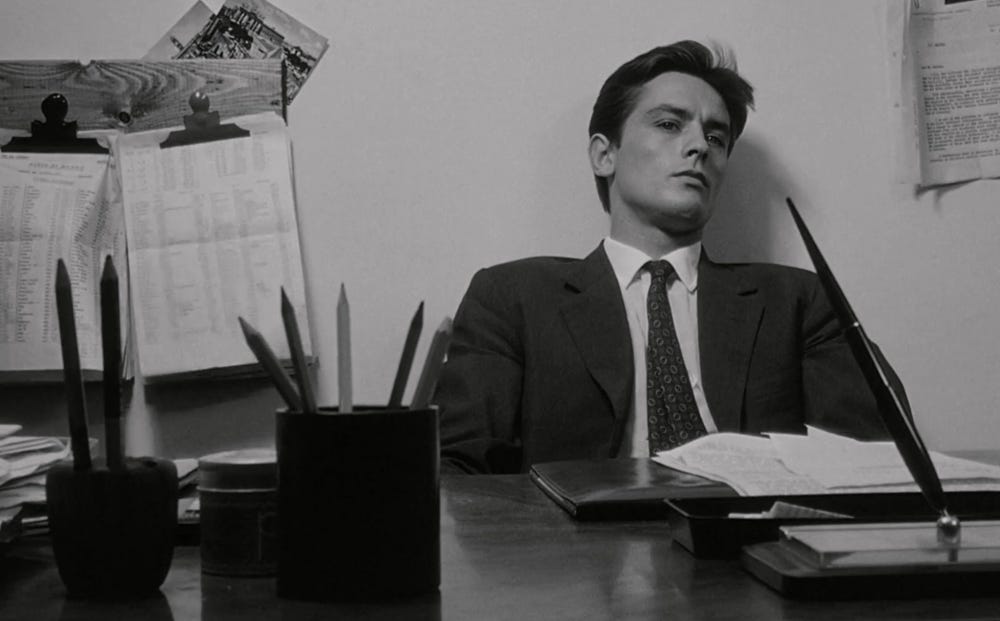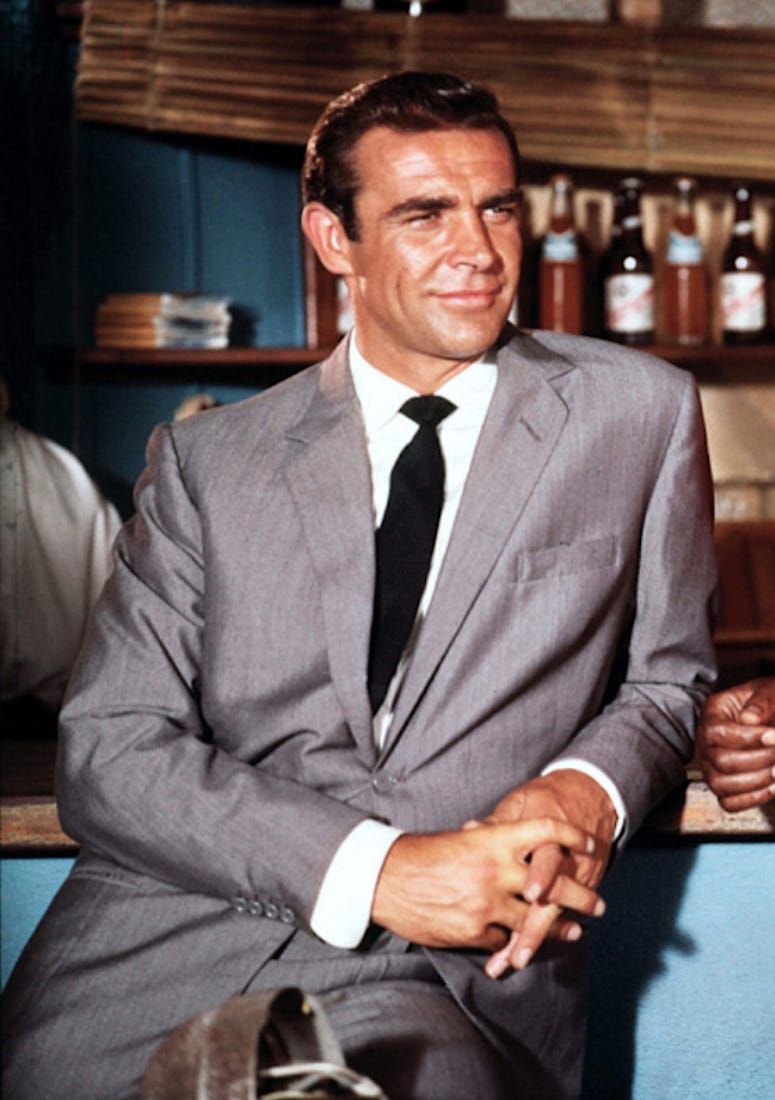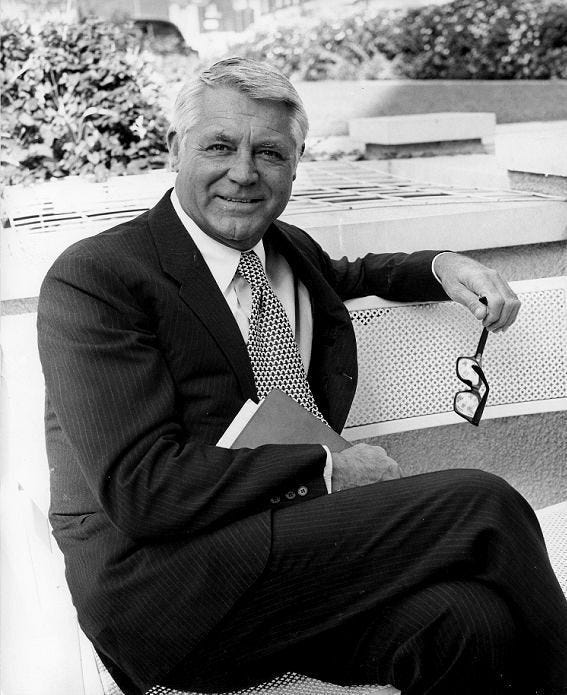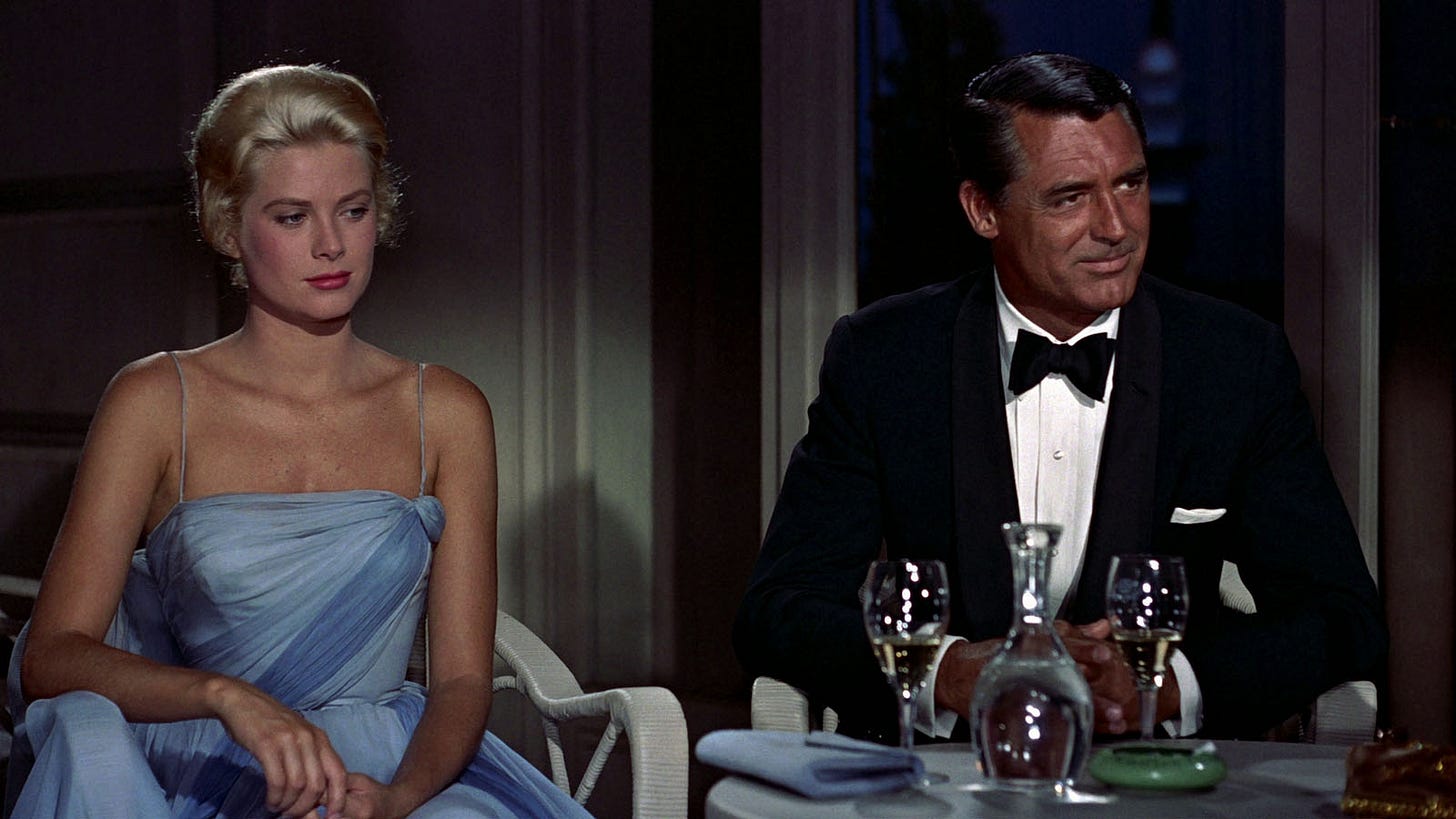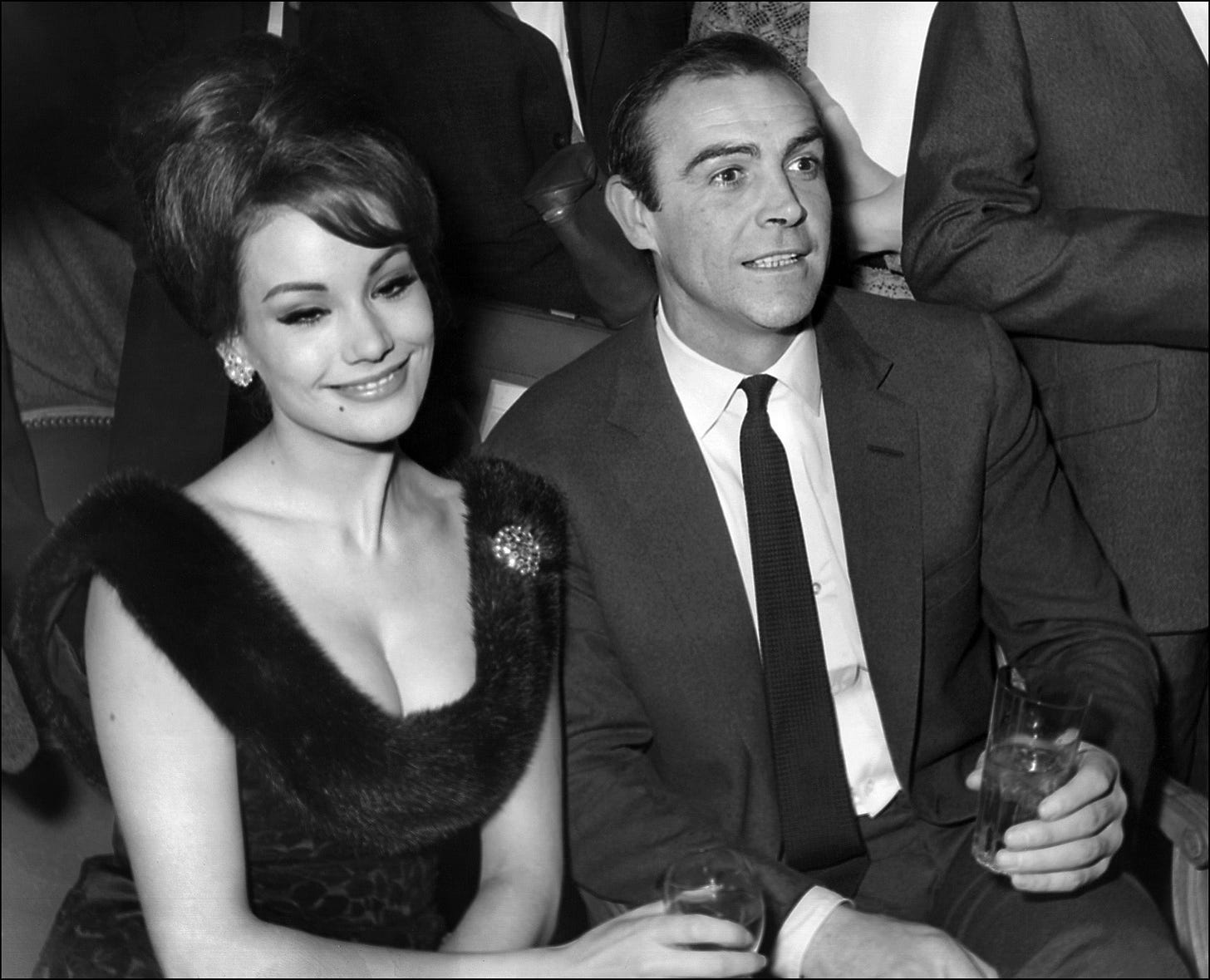If You Feel Behind in Life, Read This
How to Be a Man With Nothing to Prove
There are few things modern people are more obsessed with than money, material possession, and appearance—things that signal one’s status in the social hierarchy.
This isn’t to talk down, and certainly not to present myself as some spiritual guide detached from the status game others are playing—because that would mean going against the very grain of human nature.
“The story idealists sometimes tell of humanity says we're natural seekers of equality. This isn't true. Utopians talk of injustice whilst building new hierarchies and placing themselves at the top. We all do this. It's in our nature." - The Status Game: On Human Life and How to Play
Based on that idea, it’s clear that people—you, me—we’re all status-seeking. We all crave a better placement in society. The higher the echelon we feel we belong to, the greater the dopamine surge, the sense of gratification we feel within ourselves.
The problem, as you probably already know, is that this craving has led humanity into living for approval, for shallow aesthetics, for surfaces without substance.
Examples?
Just look at the common beliefs and desires modern masses cling to:
Doing whatever it takes to get into a prestigious college in New England or Oxfordshire—only to end up as a cog in a machine they’re not even aware of.
Accumulating money—not for wealth, not for creation—but to acquire objects that signal to the world they’ve “arrived.”
Obsessing over looking productive: sleep-deprived gym sessions, self-help books stacked high, long hours in front of a screen with nothing meaningful produced.
All of this… for what?
To reach a place where few can be, to know people in privileged circles, to be perceived as someone who has “made it.”
Now, gentlemen—my proposition in this essay is simple:
You don’t need a Ph.D. from Harvard, a fleet of grand tourers parked outside a private villa, or the cold indifference of a modern technocrat whose company is valued in nine figures—all to fulfill the status game, to stand at the echelon supposedly reserved for the few.
What I’m saying is this: you can bypass all conventional external possessions—and still stand on par, or even in a higher league, than the upper class you once perceived as untouchable.
You can bypass the status game with Gentlemanly Elegance.
Let me tell you a brief story.
In 2021, I first encountered the archetype of the gentleman through Sean Connery’s portrayal of 007 in Dr. No.
Yes, I admired the suits and the cool demeanor—but what truly intrigued me was this:
“Why does this man seem so at ease, so completely in command, no matter the room or the people in it?”
Because, on the surface, Bond is just a government agent. Upper-middle class at best—considering his affiliations with institutions like Eton and Cambridge and the occasional lump sum from gambling. He’s far from being at the pinnacle of any societal hierarchy.
Yet, as men across the world recognize—James Bond, especially Sean Connery’s Bond—is the ultimate man. Near-mythic in his completeness.
He knows the details of his garments—his signature navy suit with cocktail cuff shirt, grenadine tie, and black derbies, all carefully chosen instead of defaulting to barrel cuffs, plain silk, or oxfords.
He’s cultured and intellectual enough to analyze a brandy by scent, identify a Goya painting at a glance, and speak multiple languages fluently.
His mind is focused. His body, trained. His character, forged with integrity.
All of this contributes to the ease he radiates—a key I found in the secret of status: it can be bypassed.
Now, I’m far from that level.
But ever since I began this journey, I’ve seen that same “effect” unfold in my life, again and again.
From people thinking I’m in my late 20s (when in fact I’m much younger), to the perception of competence through the way I listen, speak, propose ideas, and explore subjects deeply—I’ve found myself able to converse on equal footing with brand CEOs, earn the respect of seniors, and capture the intrigue of socialites I supposedly have no business interacting with.
So, gentlemen:
To be an elegant man—a man with nothing to prove to anyone—is to access a state of mind that opens up an entirely different dimension of life.
And it all starts with being aware, accepting, and learning to use the psychological burden we call “insecurity”—that ugly engine of greatness.
Insecurity – The Ugly Drive of Greatness
“Everyone wants to be Cary Grant. Even I want to be Cary Grant. Let me expand a bit. I sense that you may feel that I am free of problems. Let me assure you that I have the same anxieties and insecurities as anyone in this auditorium—maybe more.” – From one of Cary Grant’s lectures
When people think of Cary Grant, an image of a suave, debonair, well-mannered, and impeccably dressed gentleman is likely the first thing that comes to mind.
However—as I’ve spoken and written about in-depth—his polished persona was not something he was born with. Cary Grant was the byproduct of tremendous insecurity that Archibald Leach, the man behind the name, carried with him since childhood.
Insecurity: a feeling of lacking confidence, of being unsure of your own abilities—or whether people even like you.
It’s not just a definition. It’s a condition, deeply rooted in experience.
The conditioned love of parents
The abandonment from someone you loved
The rejection from the opposite sex
The inferiority you feel when compared to your peers
The criticism or skepticism from those in authority
These are not rare afflictions. Every human being, no matter their birthright or social class, will face them in one form or another.
But for someone like me—born into the middle class, and not just any middle class, but on the peripheral edge of the global narrative—say, in a city like Bangkok, where only a select few enjoy the best of what life offers—the weight of insecurity can stack up like a quiet avalanche.
And yet, as I mentioned in the post that I’ve fully devoted to the man: this so-called insecurity, this mental fragility, this hardship we often wish to escape or numb—has been the exact catalyst for some of the greatest icons in the history of mankind.
“You must have chaos within you to give birth to a dancing star.” - Friedrich Nietzsche
Still, once a man accepts that he has something to prove—that he must live up to something—he begins a journey. A painful one. From that initial awareness to the final arrival, to that inner moment when he can finally say:
“I’ve arrived. And I no longer doubt who I am.”
Oh, gentlemen, this is the pain we are meant to suffer. Yet very few know how to navigate it…
Because there’s a reason modern ideologies are obsessed with “productivity,” “biohacking,” or any technique that promises peak efficiency in minimal time.
I mean, who doesn’t want quick gratification?
Who wouldn’t want guaranteed results that promise happiness at the end of the tunnel?
That six-figure income.
That sleek Porsche.
That warm embrace and passionate kiss from the woman you desire.
That life full of sweetness.
But from what I’ve seen—and lived—let me be one of many voices confirming:
The road is hard.
The journey to “arrival” never comes without sacrifice, delay, and doubt—no matter how much effort you put in.
“There is no coming to consciousness without pain.” - Carl Jung
To build the right product, to create something unique, to gain leverage from the ground up—these require resilience, adversity, and obsession. Without that, most men abandon their pursuit and retreat into temporary comforts.
And amidst the spiral of failure, while wrestling with self-doubt and the inner voice that whispers, “You’re not good enough,”—
A harsher truth emerges:
No one truly empathizes.
The prospect doesn’t care how hard you tried—only whether you deliver.
The client doesn’t care about the backend chaos—only that the product works.
The beautiful woman doesn’t care about your struggle—only whether there’s promise, potential, power in what you’ve built.
So, gentlemen…in this phase of building, in this prologue of a man’s life, what’s most ordinary is a chaotic mind:
Insecurity.
Hunger.
The constant need to prove:
“I’m worthy. I matter.”
But from that very place comes a dangerous pattern—
A life lived entirely for the approval of others.
A gesture that lacks command.
A presence that lacks centeredness.
Yet—if you remember what I hinted at earlier—there exists an opposite archetype: The Gentleman Who Has Nothing to Prove.
Here’s the core truth:
You can be that gentleman—even during the building phase.
Even while you’re on the path.
Even before you’ve “arrived.”
The Beauty of a Man Who Has Nothing to Prove
Let’s return to Cary Grant for a moment—this time, specifically to his iconic role as the retired burglar, John Robie “The Cat” in To Catch a Thief.
If you’re a fan of this gentleman, you’ve probably noticed a pattern in his most celebrated roles:
He must be suave.
Composed.
Debonair in demeanor.
Elegant in every move, speech, and gesture.
Dressed impeccably in every scene.
Essentially, every one of his characters must carry the myth of “Cary Grant” within.
But what makes his role in To Catch a Thief stand out—as the pinnacle of lethal, masculine elegance—is the fact that this man has clearly reached a state where he has nothing to prove to anyone.
Whether it’s walking into the Carlton Cannes and effortlessly owning the room—capturing attention even from those technically above him in class—or the way he unapologetically calls out Grace Kelly’s character (an heiress used to being adored by high-status men),
Robie remains completely himself.
He is not trying to impress.
He is not posturing.
He is simply present—and in command.
Combine that with his elegant demeanor, suave charisma, and inner ease… and what you have is the ultimate aspiration of what a man can become when he stops living for others and starts answering only to himself.
Now… I know the usual objection:
“But John Robie is just a film character. Cary Grant was an outlier.”
And here’s my counter:
What’s wrong with using that as aspiration—and dying trying to reach that state of mind?
Because, gentlemen, if the problem during a man’s building phase is the external projection of insecurity, neediness, and desperation to prove something—which, by the way, radiates a “low-status” aura that hurts your chances in many areas of life—
Then my proposition is this:
Cultivate that inner state of ease.
Be comfortable in your own skin.
And act as if you’ve got nothing to prove—even if you’re still on the journey, even if you haven’t “arrived” yet.
The Ultimate Experience Reserved for the Few
I want you to imagine walking into a room—and knowing you are the most elegant man in it. Not because of what you wear (though that helps)…but because of how you carry yourself.
Your style
Your manner
Your calm presence.
Imagine being so composed… so charismatic… so quietly mysterious—that others are intrigued by your silence. Moved by the mindfulness in your speech. Drawn to the depth in the energy you radiate.
A social situation where you command respect—without even saying a word.
Now here’s the most powerful part: this doesn’t just apply in elite circles.
It applies everywhere—from your local community to the highest levels of society.
And the entire time, the only thing running through your mind is:
“I have nothing to prove to anyone in this room. I’m just here—present, grounded, enjoying the moment, occupying my space with integrity and intention.”
That… is sovereignty.
That… is freedom from the mental cage most men never escape.
And you can access that—even during the hardest chapter of your life.
Even when you’re still building from the ground up, with no results to show (yet).
This is a state of life I offer in direct 1-on-1 mentorship through my flagship offer, Elegante Esquire. You can find more details via this link.
But for those of you who’ve stayed with me this far—
I want to give you something.
My personal framework.
The one I use to access that state of ease.
The mindset of living like a gentleman of comfort—a man who no longer needs approval from anyone.
(It’s the very reason I’m still writing to you. And the reason I’ll keep going.)
#1 You need to know where you want to go.
In other words, know the exact arrival you seek in life—the destination you aspire to reach in this lifetime.
“A man without a goal is like a ship without a rudder.”
Without a clear goal, the mind has no framework to anchor itself—no structure to guide daily life.
And without that structure, chaos is inevitable.
This is the stage most people haven’t even reached.
With the endless distraction and noise of modern life, stillness becomes a luxury. The solitude required to truly hear your own voice is stripped away—by notifications, obligations, opinions.
And when you haven’t given yourself the chance to listen—
To hear what you want,
To know where you want to go—
Then no one can help you.
Only you can reclaim that clarity.
But once clarity arrives, direction follows.
You begin to understand what to pursue—and what to avoid.
And soon, something deeper is born:
Obsession with purpose.
That quiet, persistent voice inside you—the one that speaks over and over again—starts to crystallize.
Telling you what you were born to do.
Practical takeaway:
Sit aside for one hour. Write down every detail of the life you want. List everything you’re doing that’s keeping you from it. Then—ruthlessly eliminate those things.
Replace them with actions, habits, and standards that reflect the identity of the man worthy of that arrival. Because once you see the image clearly, only then can you begin to tap into the magic of the gentleman’s life.
#2 Elegantly Act Like You’ve Already Arrived
As we’ve explored, the great dilemma of being a man in the building phase—the “No One” phase—is the lingering sense of inferiority.
That powerless feeling.
That neediness to prove yourself.
That hunger to show the world what you have—yet nothing tangible to back it up (yet).
Here lies the secret many men never discover:
Live now as if you’ve already become the man you aspire to be.
Live elegantly, as if you’ve already arrived.
When I say “elegance,” I don’t mean dressing in a classic style or projecting superior mannerisms.
I mean:
The intention behind every move.
The grace within every thought and action.
Here’s what that looks like—from dawn till dusk:
He wakes up deliberately, with no alarm. No unseen force from a boss or system dictating his start.
His morning is sacred: a glass of water, a coffee from the Moka pot, a refreshing shower, careful grooming—a ritual of presence.
He dresses in a way that reflects his personal standard. Not to impress, but to express.
His work is done with precision and presence. He knows what matters and gives it his full focus.
When social time calls, he arrives on time.
At day’s end, he reflects. On what he created. On what he savored.
That, gentlemen, is what my version of the Elegant Life looks like.
Here’s the second practical question to carry with you:
“If the man I aspire to become were living my life right now—what would he do in my current situation?”
Ask it constantly.
This mindset unlocks access to a rare psychological state:
A man who has nothing to prove to anyone.
Even if you still have goals to hit, milestones to achieve, results to prove—You will carry yourself with the stillness and sureness of someone who already is.
And trust me, gentlemen—when you live your life so fully, so elegantly, so beautifully aligned with your inner ideal…
That neediness to impress?
That inferiority when standing next to higher-status people?
It begins to fade, day by day.
Replaced by a quiet certainty—
That you are exactly who you were meant to be.
And you’re living it.
#3 Learn How to Appreciate the Present
This final principle may sound cliché to some.
But it’s precisely because of that—because it’s been said so often—that its wisdom often gets dismissed.
The ideology of being present, of practicing daily gratitude, of learning to find happiness in the now—is crucial for the gentleman in the making.
Why?
Because it’s far too easy to feel demoralized.
To be tempted to give it all up and return to mediocrity.
To give in to the idea that no one understands the path you’ve chosen—the path that only the discerning few even see.
When you’re obsessed with external results…
When your mind is constantly fixated on “the arrival”…
You risk falling into a cycle of chasing happiness that never actually arrives.
So what do you do?
To sustain yourself psychologically—
To stay calm and composed in this “no one” phase—
You must learn to enjoy the day.
And yes, the typical tools like a gratitude journal or positive affirmations are valid and effective—
But I want to offer something deeper, something more aligned with the way I live.
I call it - Romanticize the Now.
It’s a modern successor to a movement from the early 19th century—Romanticism.
In my context, romanticizing the now means finding artistry, depth, and poetry in daily life.
Infusing even the smallest acts with meaning and presence.
(And yes, I once shared my full personal method for this in a paid post.)
But here’s the core idea:
When you create meaning in everything you do—
When you find beauty in conscious, intentional action—
You start to realize just how remarkable your life already is.
From the art of waking gently with no alarm…
To moving through the morning with grace…
To working with focused precision…
To dressing well in the evening—not for show, but because the moment deserves it.
Practical step:
Narrate your life in an aesthetic voice. Notice the details. Find the hidden beauty.
(Hint: You can even use a language model to help romanticize your day.)
When you begin to see the grace and meaning in the life you’re already living,
It becomes easier to appreciate yourself—
To stay committed—
To walk the extraordinary path, no matter how long it takes.
When you apply these three principles…
Know where you want to go.
Elegantly live as if you’ve already arrived.
Romanticize the now and find joy in the journey.
You begin to realize something powerful:
The state of “a man who has nothing to prove to anyone” is not a fantasy reserved for Cary Grant in To Catch a Thief.
(Though mastering that level of poise may take years of devotion.)
But here’s what is certain:
You no longer have to feel inferior, no longer need to feel lost, or walk around demoralized during this phase of your life.
As long as you live each day as the man your future self would be proud of—as long as you act with elegance, execute with intent, and find beauty in every part of the process…
Then, gentlemen,
You have already touched a level of experience that only 1% of men will ever know.



